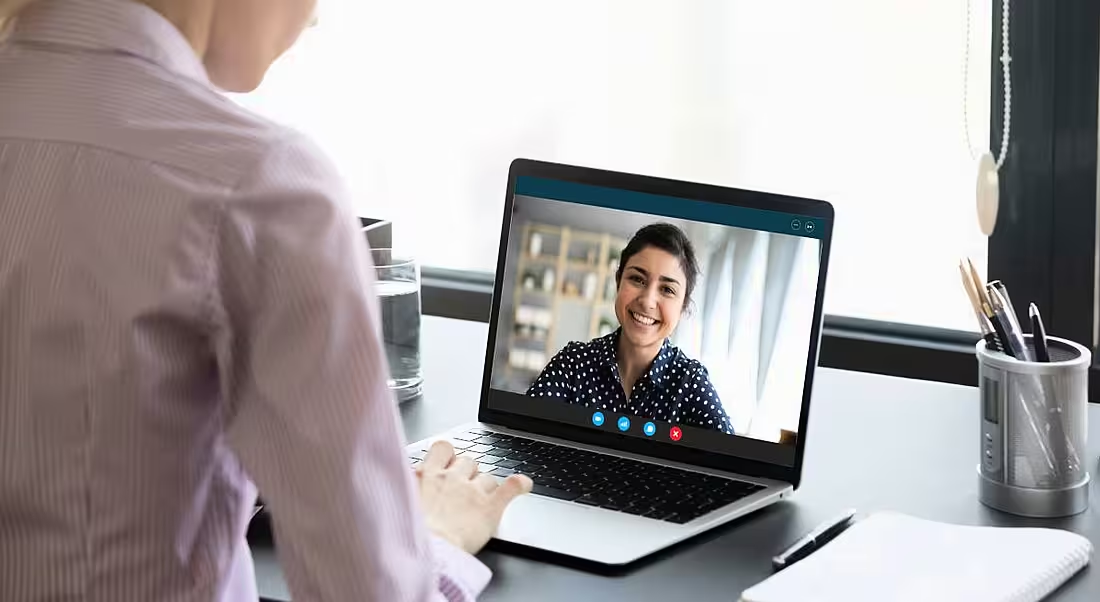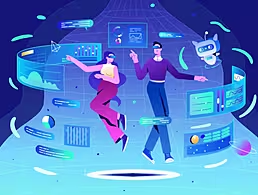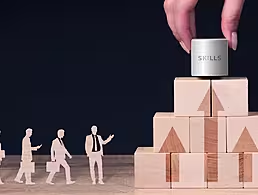What are the differences between remote and in-person job interviews? What skills are recruiters on the lookout for right now? Modern Hire’s Mike Hudy shares his insights.
Over the past few months, we’ve all gotten used to doing more things online. But as many companies continue to extend work-from-home policies and limit in-office activity, it seems that remote recruitment may become more of a norm.
But how can you prepare for a remote job interview if you’ve never experienced one before?
Mike Hudy is the chief science officer at enterprise recruitment platform Modern Hire. He has more than two decades of experience in talent analytics, having previously served as the executive VP of science at Shaker International. Here, he shares his tips for taking part in a remote interview, from the skills you should emphasise to when you should log on to the call.
‘While a remote interview can come off as intimidating, candidates should be themselves’
– MIKE HUDY
Is it more challenging to showcase your skills in remote job interviews?
Showcasing skillsets can be challenging in both virtual and in-person interviews. However, there are a few things candidates can do to ensure they’re highlighting what makes them valuable remotely.
First, ahead of the interview, candidates should include soft skills in their cover letters and résumés. While technical skills are mostly prioritised in cover letters and résumés, try incorporating three to five softer skills you consider to be your best assets when communicating and working with others.
Second, take advantage of behavioural and situational interview questions. Because these questions require real-life examples, have a few prepared ahead of time. For example, one question could be to describe your experience working with a difficult team member. Make sure your answer effectively addresses how you work with others and go about navigating tough situations.
Mike Hudy. Image: Modern Hire
Lastly, it’s important to show enthusiasm and emphasise that you’re capable of making personal connections during any interview, but this can be tough to communicate during a virtual interview. Enthusiasm, interest and effective communication are some of the most important skills that recruiters take note of throughout the hiring process.
By doing research and asking the recruiters questions about what skills they value most, to describe what their culture is like and so on, you’ll be able to demonstrate your genuine interest in the company, job and opportunity effectively.
What steps would you advise people to take in preparation for a remote interview?
There are a few tips I’d advise candidates to consider when preparing for a remote interview. First and foremost, candidates should practise ahead of time. It’s important for anyone preparing for a virtual interview (and in-person interviews) to research the company and practise answers around how they approach situations that pertain to the job ahead of time.
For example, if you’re interviewing for a customer service role, practise how you would approach and console an angry customer. When possible, it’s good to give recruiters examples of your experience, so writing down situations you’ve successfully navigated in your role is a good idea so that they’re top of mind.
Additionally, while a remote interview can come off as intimidating, candidates should be themselves. When preparing ahead of the interview or taking a pre-hire assessment, answer the questions and scenarios how you would on the job. It’s equally as important to figure out if you’re a fit for the role and company.
One thing to keep in mind about virtual interviews is that they can provide job-relevant clues about an organisation. Paying attention to how hiring managers answer your questions can give you a great deal of insight into the company’s culture, how they operate, how success is defined and which traits matter most.
Finally, if you can, log into the remote interviewing platform early so you can get comfortable with the technology. This way, you can focus on the interview – not on troubleshooting technology – during the conversation with the hiring team.
Are there any particular skills HR teams will be looking out for at the moment?
According to recently aggregated data pulled from Modern Hire’s client base, we found that there are a few skills that recruiters and HR teams look for across all industries. Self-motivation, strong work ethic, results-oriented, past performance, persistence and ability to cope with pressure are all highly sought-after skills, no matter the industry.
When completing the virtual interview, try and pull examples from previous experience that speak to these unique skills – especially if you’re interviewing for a role in a new industry.
Are there any resources you’d recommend for people to learn more about this?
There are a lot of great resources out there to help people prepare for remote interviews. All of the major providers of video interviewing have really good resources. For instance, at Modern Hire we regularly publish blogs on the topic.
Other service providers in the hiring space also provide resources, like Indeed and Glassdoor. A recent post on Indeed covered how to make a good impression during an interview and Glassdoor has shared great advice on how to ace virtual interviews.
Another great place that people can go for more information is college websites. Many institutions provide resources to help recent grads prepare for job interviews. Finally, many reputable business publications provide useful quick tips for helping prepare for a virtual interview, such as Fast Company, HBR and The Muse.




